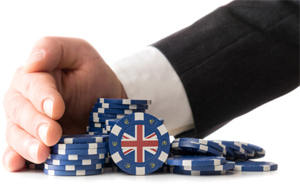
Betting on the outcome of the Brexit vote which took place last week broke the record for non-sporting events, with gamblers wagering in excess of £120 million and ushering in political betting as an exciting new and potentially lucrative market.
The result of course was rather shocking to most and left some bookmakers celebrating huge profits, while others mourned heavy losses. Here we’ll take a look at how, in addition to changing the world as we know it, affected the bookmakers who offered odds on this political event.
The Betfair exchange accepted close to £80 million while other bookmakers raked in around £40 million in Brexit wagers. Of course, the bookies incorrectly called the result as “stay” and like the pollsters and experts, got it horribly wrong.
Of all the bookmakers, William Hill was the hardest hit in terms of losses. After accepting £3 million in wagers, the company ended up with a net loss of £400,000 when the results were announced on Friday last week. According to William Hill’s media relations director Graham Sharpe, “Very few saw this coming“. He added that more punters must have backed “leave” at William Hill than other bookmakers offering the same bet.
The numbers support Sharpe’s statement. At William Hill, 68 percent of the money wagered was on remain, but 69 percent of the individual bets were on “leave”.
On the other hand, at Ladbrokes the average wager in the Brexit market was £400 to “remain” and just £70 to leave, which heavily skewed the odds in favour of the general prediction that the UK would remain within the EU.
Ladbrokes’ head of political betting, Matthew Shaddick explained that even though the majority of gamblers in the market were wagering on “leave”, this didn’t affect the prices, he added that the amounts of money wagered are what count, with a single £10,000 wager counting the same as 10,000 individual bets valued at £1 each.
Ladbrokes reportedly earned a six figure profit on the market despite calling the Brexit result incorrectly. The company attributes this to smaller payouts being made to successful gamblers, as the majority of players who wagered on “leave” did not bet large values.
Betfred reportedly accepted over £1 million in Brexit bets, and earned a small profit on the market, which it described. Still it describes the outcome as “the biggest ever shock in political betting”, especially after all of the big money was on “remain”.
Coral also took £1 million in wagers but balanced its book in such a way that it would have made profit on either of the referendum’s outcomes.
As you can see from the above, the Brexit result took the betting industry as much by surprise as it did the rest of the world and this shows that the commonly held believe that public sentiment is a reliable indicator, is a flawed principle when it comes to betting.
Yet bookmakers seem unperturbed. As Shaddick from Ladrokes noted, bookies do not offer odds on political events to help people forecast the results, they do it to turn a profit or at least not lose much. He added, “Nobody at Ladbrokes’ HQ will be criticising the predictive powers of our odds, they’ll be looking at the money we made“.
Bookmakers weren’t the only ones surprised and left reeling after the Brexit vote, some rather noteworthy financial magnates like George Soros were too.
George Soros, a hedge fund boss and veritable gambling legend earned his place in the gambling hall of fame, being dubbed “The man who broke the Bank of England” when he bet that the Pound Sterling would fall in 1992.
Soros short-sold more than £7.6 billion in currency at the time, which meant that if his prediction was correct, he’d make money when the Pound’s value fell. The bet paid off and when the UK fell out of the European Exchange Rate Mechanism and consequently the value of the Pound fell, Soros walked away with a profit of £760 million.
Soros hoped to repeat his good fortune over two decades later on the Brexit vote, but he failed to repeat the feat this time around. According to a spokesperson for Soros, like most prudent investors, Soros put his money on the UK voting to remain part of the EU, and predicted that the Pound would rise as a result. Unfortunately the vote didn’t go the way of the general sentiment but according to sources, Soros’ generally bearish outlook on the markets afforded him profits on other investments.
Soros, now aged 85, warned that the British economy and people stand to suffer significantly in the short to medium term due to the decision to leave the EU. He added that the disintegration of the EU was practically irreversible.



